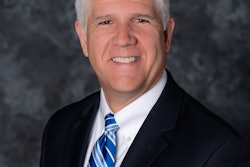The United Negro College Fund announced a comprehensive initiative Tuesday designed to empower Black parents as advocates for increasing the number of Black teachers in America's classrooms, addressing a critical shortage that has far-reaching implications for student success and educational equity.
 Dr. Meredith Anderson
Dr. Meredith Anderson
"The stakes are high for our Black students," said Sharif E. Mekki, founder and CEO of the Center for Black Educator Development. "The need for parent involvement in the work to bring more Black teachers into the service of our young people is greater now more than ever."
The announcement comes as new data from UNCF's K-12 Education Advocacy Division reveals a striking disconnect between parent engagement desires and current opportunities. According to a national survey conducted by the organization, 93% of Black parents would like more opportunities to be involved in their child's education and greater input into education laws affecting their children.
The initiative addresses a stark reality in American education: while 55% of students of color attend U.S. public schools, only 22% of teachers are of color, and merely 6% are Black teachers. This representation gap has measurable consequences for student outcomes, according to research cited by UNCF.
 Ashlyn Thomas
Ashlyn Thomas
The impact extends beyond individual students. Research shows that Black teachers achieve the highest student retention rates in under-resourced schools and have lowered out-of-school suspensions by three times the national average.
Central to UNCF's strategy is highlighting the critical role of historically Black colleges and universities in preparing educators. A recent UNCF study, "The Heart Work of Hard Work," examined best practices in teacher preparation programs at HBCUs and found these institutions serve as significant producers of Black teachers for America's public education system.
The study revealed that HBCUs maintain extensive recruitment networks, cultivate intentional relationships with students, employ culturally responsive curriculum, and provide comprehensive mentorship support. These practices result in graduates who are uniquely prepared to serve their communities with excellence and positively impact learning environments for all students.
"HBCUs have extensive recruitment networks, cultivate intentional relationships with students, employ culturally responsive curriculum, and provide mentorship support," the study found. "HBCU-educated teachers leave their institutions equipped to serve their communities with excellence and have a positive impact on all students' learning environment and outcomes."
The toolkit development was informed by extensive parent feedback through UNCF's study. The research showed that African American parents felt more respected, held higher college-going aspirations for their children, and reported fewer instances of exclusionary discipline when their children attended schools with more African American teachers.
"The presence of Black teachers is not just beneficial—it's transformational for all students," said Ashlyn Thomas, co-author and research and engagement manager at UNCF.
Dr. Michael L. Lomax, president and CEO of UNCF, said that the initiative represents more than a temporary campaign.
"It is abundantly clear when parents and communities join forces and advocate for change, they ensure this work is not just a movement, but a sustained commitment to excellence for generations to come," he said.
The toolkit also includes strategies for celebrating Black teachers through social media campaigns like the Center for Black Educator Development's #WeNeedBlackTeachers initiative, creating multiple pathways for parent engagement and advocacy.
Parent advocate Elaine Wells, featured in the toolkit, captured the collaborative spirit of the initiative.
"When Black parents stand with teachers and school leaders, we create a village that nurtures our children academically, socially and emotionally," she said.









